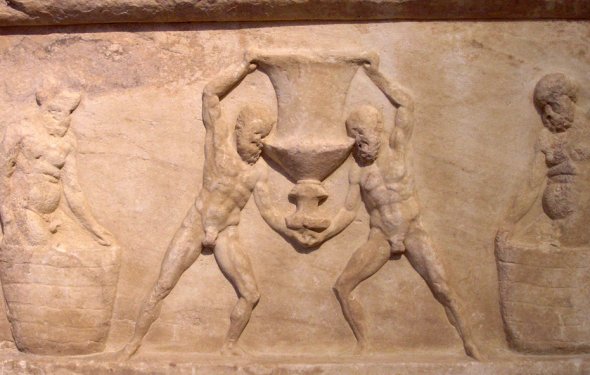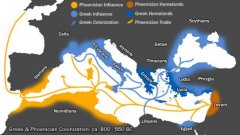Ancient Greece economy facts


Trade Incentives & Protection
Maritime loans enabled traders to pay for their cargoes and the loan did not have to be repaid if the ship failed to reach safely its port of destination. To compensate the lender for this risk, interest rates (nautikos tokos) could be from 12.5 to 30% and the ship was often the security on the loan.
The involvement of the state in trade was relatively limited; however, a notable exception was grain. For example, so vital was it to feed Athens’ large population and especially valuable in times of drought, trade in wheat was controlled and purchased by a special ‘grain buyer’ (sitones). From c. 470 BCE the obstruction of the import of grain was prohibited, as was the re-exportation of it; for offenders the punishment was the death penalty. Market officials (agoranomoi) ensured the quality of goods on sale in the markets and grain had its own supervisors, the sitophylakes, who regulated that prices and quantities were correct.
- Valutazione e acquisto di alcolici. Per la collezione privata di acquisto di cognac d'elite urgente.



|
Olympus Griddlers Mobile Application (8floor ltd)
|

|
Louis XIV Toy (Rio Grande)
|

|
Palazzo Toy (Rio Grande)
|

|
Popcap Words 2 Pack: Bookworm & Bookworm Adventures Video Games (PopCap Games)
|
|
Neonphoenix Black Friday 100% Hand Painted on Canvas Hot Sale Christmas Gift Full Moon Deep Blue Sea Oil Painting 5-pieces Artwork Landscape for Living Room Home and Wall Decoration Home (Neonphoenix)
|